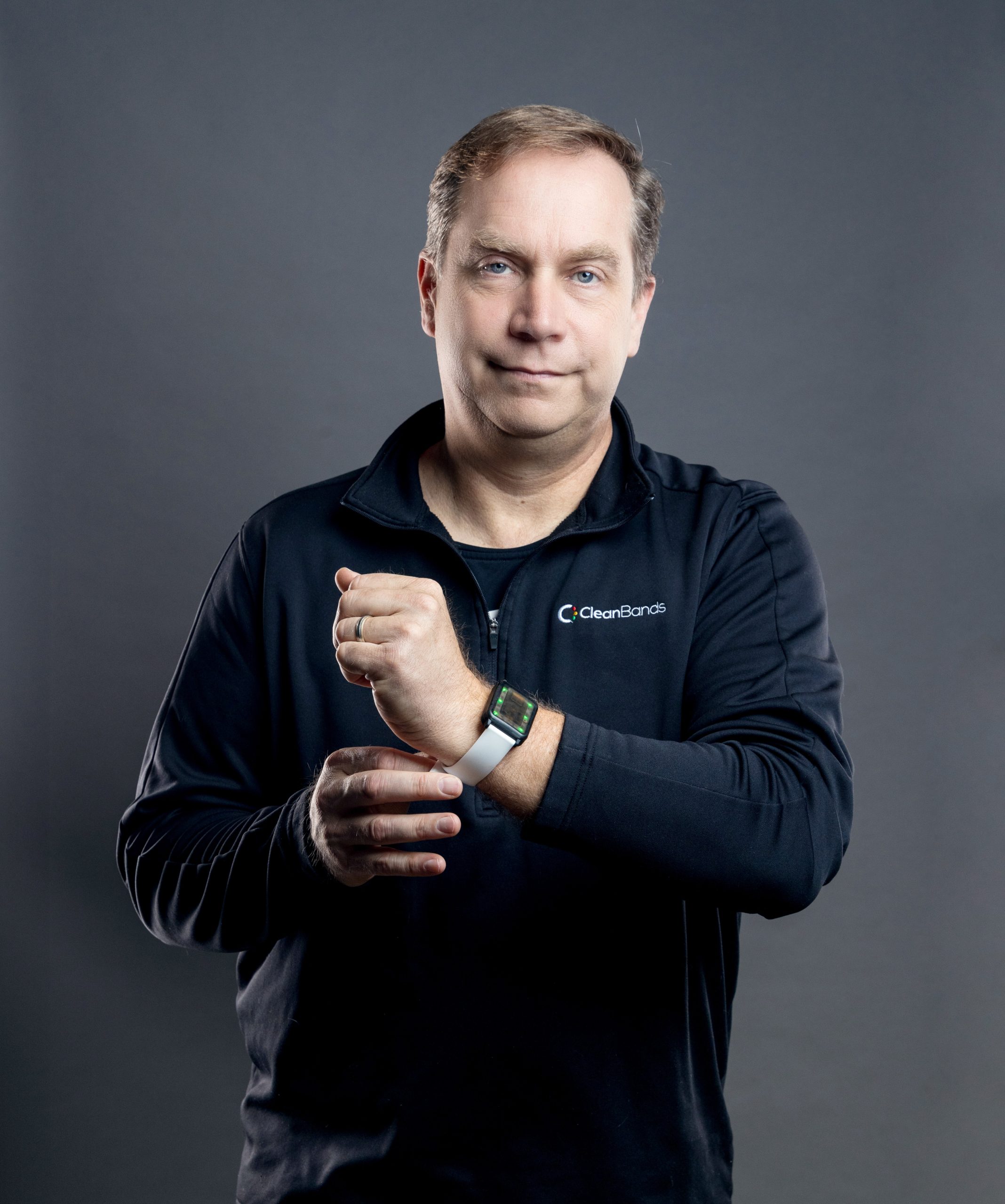Atlantic Canada-based company leveraging technology to help enhance food safety


By Sean Tarry
A lot has changed in and around the foodservice industry over the course of the past three years or so. Impacts of the COVID-19 global pandemic, which have disrupted and disturbed virtually every sector around the world, just about turned restaurant and hospitality operations on their heads. Public health restrictions and protocols significantly diminished opportunities for foodservice operators to continue servicing guests while severely shaking people’s collective confidence concerning entering establishments. However, as we now seem to be entering something of a post-pandemic era, opportunities have returned for restauranteurs to cater to their visitors. And, according to Dave Iwankow, CEO of CleanBands—a company that’s designed a revolutionary system that helps ensure hygienic excellence for foodservice staff—it also presents them with the chance to assure their guests of the cleanliness and safety of their visit.
“When it comes to food safety, handwashing is something that’s most often been taken a little bit for granted,” he says. “And that’s because it’s always been assumed as part of the basic standards of a restaurant or other foodservice establishment. Everyone expects that there aren’t any rats or bugs. That’s what we have health inspectors for. And the same could traditionally be said about handwashing—everyone just assumed it was happening. However, the reality of it is that handwashing is very poorly controlled, and it’s a concern among today’s consumer that’s been brought into the spotlight of late as their awareness around cleanliness and safety has been heightened since the onset of the pandemic. In light of this, I saw an opportunity to develop a way by which those working within the foodservice industry could prove to their guests that their food is being handled with the utmost of cleanliness.”
Ensuring handwashing
The opportunity that Iwankow refers to parlayed into the development of digital bands that foodservice staff wear on their wrists like a bracelet. They’re dynamically assigned to staff when they start their shifts, are worn by those individuals for the duration of their shift, and are returned to their charging stations after use, remaining at the restaurant. A minimal design and lightweight feel means that they’re unobtrusive for both the person wearing them as well as guests of an establishment. And, most importantly, supported by sensor technology that’s deployed at designated handwashing sinks, the bands will let everyone know when it’s time for the individual wearing them to clean their hands. If the face on the band is yellow, it means that 25 minutes have passed since the individual’s last handwashing, serving as a prompt to wash their hands soon. If the light turns red, it means that too much time has passed in between handwashes, and that the individual must stop everything that they’re doing and wash their hands. When handwashing, the band’s face will turn blue and remain so for at least 20 seconds of washing. And, when the face on the band is green, it means that the individual’s hands have been properly washed for the appropriate amount of time.
Quantified results
It’s a simple yet ingenious invention that could serve to differentiate the establishments using them from their competitors who don’t. And, as Iwankow points out, CleanBands can also ensure that one of the two pillars of food safety is met, allowing restaurateurs to monitor compliance among their staff, and guests to dine with the peace-of-mind that those serving them their food are following handwashing protocol.
“The two most important aspects that help ensure food safety are temperature control and handwashing,” he explains. “If a restaurant owner can manage those two things, then the risk of foodborne outbreaks within their establishments decreases significantly. Temperature has historically been relatively easy to control—you stick a thermometer in and monitor the temperature reading. Today, there are systems that allow kitchens to put their temperatures online, allowing chain establishments to know exactly what temperature their soups are at all of their locations across the country. Until now, there’s been nothing equivalent when it comes to handwashing. With CleanBands, handwashing is quantified in order to alert managers that training is being followed and that their staff are doing what’s required to reduce risk for customers.”
Setting a standard
When it comes to customer safety and the things that foodservice establishments need to be doing to reduce risks, there can be a pretty hefty price to pay for those who shirk their responsibilities. In fact, in 2020, Chipotle Mexican Grill was ordered to pay US$25 million in order to resolve criminal charges levied against the American fast food giant over accusations of serving tainted food and general uncleanliness, much of which was related to a lack of handwashing discipline. In response, Chipotle’s corporate decision-makers developed a sheet that managers of the restaurant’s locations must sign at the end of each shift, confirming that all staff washed their hands according to the company’s protocol. Iwankow argues that it’s a measure that just isn’t enough.
“Introducing a control that’s simply a sign-in sheet where managers initial their confirmation of handwashing isn’t actually a control at all,” he asserts. “Handwashing compliance while wearing CleanBands is visible and provable. And, our hope is that their use will broaden over time. We’re focusing at the moment on the larger chains that have multiple locations, like Tim Hortons and A&W. We want to prove our concept and the efficacy of our bands at foodservice establishments that have a lot of counter traffic. And, as the use of CleanBands hopefully becomes widespread, with their efficacy recognized by the industry, we’d love to help set a standard for handwashing whereby foodservice locations can proudly post their handwashing compliance rating on their front doors.”
Capturing opportunities
The opportunity to roll this type of technology and control out within a number of other sectors is not lost on Iwankow who sees the possibilities. For now, however, CleanBands is only entering the field-testing stage and has been deployed within a number of local Charlottetown, PEI establishments. But, when discussing the future of the company and the technology that can play such a critical role in the assurance of food safety within the foodservice industry, the CleanBands Founder and CEO has some aggressive plans and ambitious targets.
“We’ve had a lot of interest from a number of different restaurant brands both in Canada as well as the United States. Right now, we’re trying to get our bands into as many restaurant locations as possible within Charlottetown to allow us the chance to perfect our technology. And, by the middle of the year, we expect to be able to expand beyond the Atlantic region and start working on more of a national basis. Looking ahead to the next few years, we’re going to continue speaking with and introducing our technology to as many of the big brands as possible. The quick serve food industry in North America is represented by around 2,000 or so brands operating at least 100 locations. So, it’s going to be about capturing as many of those opportunities as possible in order to scale up use of our solution.”
 Canadian Food Business
Canadian Food Business




